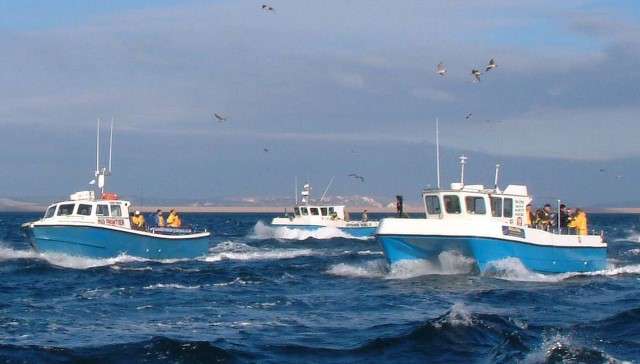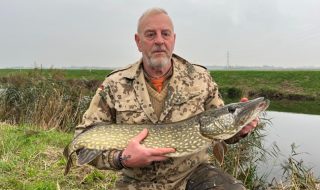Pic: Charter boats, which take recreational anglers out to sea to fish for offshore species, are a key part of coastal communities and could flourish with better sea fisheries management.
Photo: Tim Macpherson
In a new paper on UK sea fisheries post-Brexit the Angling Trust calls on the Government to turn Britain into a world leader in fisheries and marine conservation management by adopting best practice from around in the world and restoring fish stocks to good health. The Trust is also calling for members of the public fishing recreationally to be given equal recognition to commercial fishermen in the development of new UK fisheries policy and in the forthcoming Fisheries Bill announced in the Queen’s Speech.
Recreational fishing contributes over £2bn annually to the English economy and supports over 24,000 jobs; far more than the commercial sector which has traditionally dominated fisheries policy.
The Trust’s vision has been backed by former Fisheries Minister, Richard Benyon MP, who said: “Recreational fisheries offer a great opportunity to boost coastal economies and sustainability of fish stocks. The Angling Trust’s campaign needs to be listened to by Ministers as they plan a post-Brexit system for managing fish stocks”.
Future UK sea fisheries policy must fully recognise that the public fishing for pleasure and for personal consumption are direct user-stakeholders of UK fish stocks and that for some stocks recreational fishing by the public is the most sustainable exploitation method and delivers the greatest economic and employment benefits to the UK.
Management objectives for recreational fishing differ from those of commercial fishing which is only interested in the total number of tonnes of fish that can be harvested. Key drivers for members of the public to fish and spend money in coastal communities are abundant, localised, inshore populations of adult, mature, fish.
The Trust is also calling for an end to political short-termism in fisheries management: rather than aiming for a barely or just functioning fishery, all policy should be underpinned by the objective of stock recovery. This includes recognition that restoring fish stocks requires reducing, limiting or capping fishing mortality, based on scientific evidence.
Michael Gove MP, the new Secretary of State for the Environment, said recently that he wants the UK to be a world leader in fisheries and marine conservation management, and the Angling Trust is urging him to follow best practice from elsewhere in the world.
The Angling Trust favours the UK maintaining a quota system to ensure stocks are restored and fished at sustainable levels rather than moving towards effort-based systems such as days-at-sea, which evidence suggests will lead to overfishing. However, the Trust is also calling on the government to give notice that after exiting the EU the UK will be free to manage quota as it sees fit and will not be bound by the ‘reasonable expectation’ to maintain the distribution of fishing opportunities based on the former beneficiaries of EU quota.
David Mitchell, the Angling Trust’s Head of Marine, said, “Brexit offers an opportunity for the UK to take a completely fresh approach to how our public fishery resources are managed. For a number of species the public fishing for pleasure and for their own consumption deliver the best way to sustainably harvest fish. This must be recognised and taken account of in policy and the future management of publicly-owned fish stocks.”
Mark Lloyd, the Angling Trust’s Chief Executive , said: “The seas around Britain used to be some of the most productive in the world and could be once again if we have a revolution in our approach to fisheries management. We need to stop making policy which allows the unsustainable slaughter of fish stocks and destruction of delicate marine habitat, and start following scientific advice. Far more people could experience the joy of catching their own fish to eat and they would breathe new life into coastal communities throughout Britain. A policy of stock restoration would have huge socio-economic benefits for millions of people, if the government listens to scientists and anglers rather than a handful of wealthy commercial fishing barons.”






